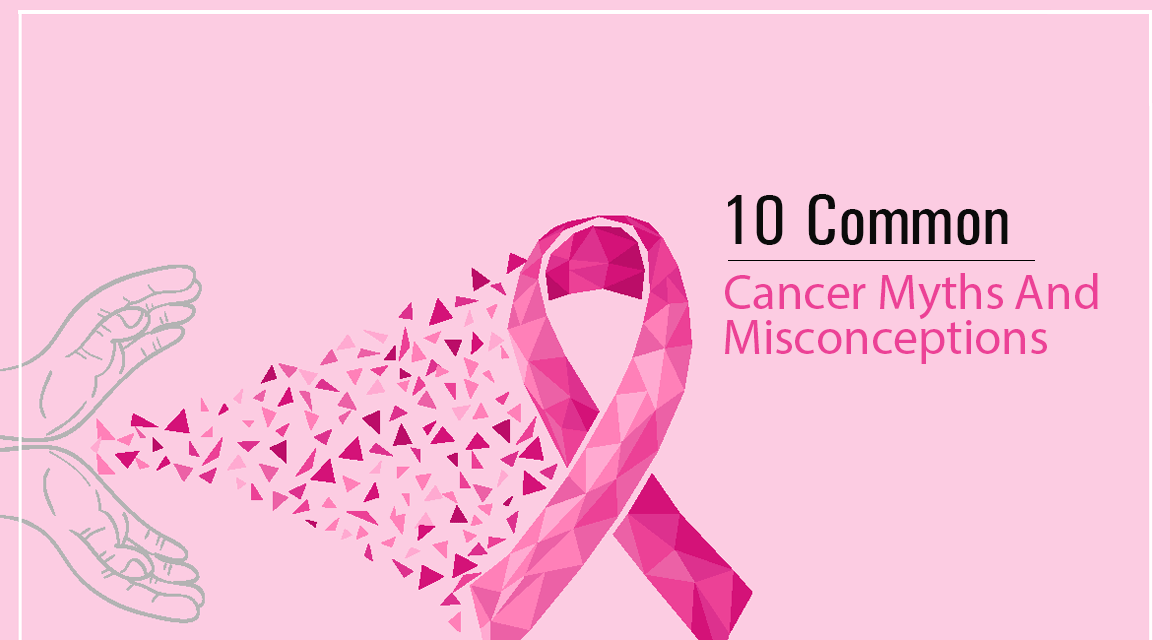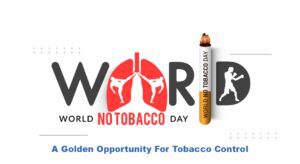Cancer Myths
Myths and misconceptions fuel the disease burden and mortality (death) due to cancer, as they increase stigma and reduce chances of cancer patients seeking effective treatment early. This results in lost opportunities for successful treatment of the disease. It also increases lost opportunities to prevent the disease. Cancer awareness is very important and through this blog we’ll make clear all the myths and facts about cancer
Questions answered by an eminent oncologist Dr. Sajjan to enlighten stuck path for society with respect to cancer and related myths. For some cancer awareness
Is Cancer a Death Sentence?
The likelihood of dying from cancer has dropped steadily since the 1990s as there is advance screening programs available for early detection along with latest emerging trials with new target / specific technology . Five-year survival rates for some cancers, such as breast, prostate, and thyroid cancers, now are 90 percent or better. The 5-year disease free survival rate for all cancers combined is currently about 67 percent. This data is according to the annual report to the nation on the status of cancer.
Do Artificial Sweeteners Cause Cancer?
No. Researchers have conducted studies on the safety of the artificial sweeteners (sugar substitutes) saccharin (Sweet ‘N Low, Sweet Twin, NectaSweet); aspartame (Equal, NutraSweet); acesulfame potassium (Sunett, Sweet One); sucralose (Splenda); and neotame. All of these artificial sweeteners except for cyclamate have been approved by the Food and Drug Administration (as per NCI fact sheet on Artificial Sweeteners and Cancer).
Is Cancer Contagious?
Patient suffering from cancer need both oral support and physical care and it’s a sin myth that cancer is contagious. Cancer is not a contagious disease that easily spreads from person to person.
Only caner transformation from a person to person can occur if a person who receives an organ or tissue from a donor who had cancer in the past may be at increased risk of developing a transplant-related cancer in the future. However, that risk is extremely low—about two cases of cancer per 10,000 organ transplants. Doctors avoid the use of organs or tissue from donors who have a history of cancer.
In some people, cancers may be caused by certain viruses (some types of human papillomavirus, or HPV, for example) and bacteria (such as Helicobacter pylori). While a virus or bacterium can spread from person to person, the cancers they sometimes cause cannot spread from person to person.
Can Cancer or a Tumor Biopsy Cause Cancer to Spread in the Body?
Following standard procedures, surgeons use special methods and take many steps to prevent cancer cells from spreading during biopsies or surgery to remove tumors. The cancer spread / metastasis is definitely not at all related to biopsy/surgical evaluation both in diagnostic as well as prognostic aspects.
If Someone in My Family has Cancer, am I likely to Get Cancer, too?
Not necessarily. Still Cancer is caused by harmful changes (mutations) in genes. Only about 5 to 10 percent of cancers are caused by harmful mutations that are inherited from a person’s parents.
Cancer is Always Painful?
People who have cancer awareness know that cancer may not be painful in the early stages. However, as it grows and spreads to other parts it may become painful. In the majority of cases cancer pain can be successfully treated with medications and other effective pain management techniques.
Can Herbal Products Can Cure Cancer?
Although some studies suggest that alternative or complementary therapies, including some herbs, may help patients cope with the side effects of cancer treatment, no herbal products have been scientifically proven to be effective in treatment of cancer.
Which Food is Most Commonly Associated With Colon Cancer and Why?
People who eat a lot of processed meats, such as hot dogs and lunchmeat, are more likely to get colon cancer. The link isn’t completely clear, but it might be because of nitrites.
Heavy Drinking Can Raise Your Chances of Getting Cancer?
Alcohol may make you more likely to get mouth, liver, colon, breast, and other cancers. It doesn’t matter if you order beer, wine, or liquor when you belly up to the bar. It’s how much you have that counts. The more you drink, the higher your risk.If booze is already part of your life, stick to no more than two drinks a day if you’re a man and one if you’re a woman.
What Can You Do to Lower Your Chance of Getting Cancer?
Exercise/physical activity. Along with healthy eating and managing your weight, it can make you less likely to get certain cancers, including breast and colon cancers.
Also Read:




